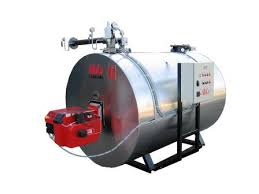
Oct . 11, 2024 21:43 Back to list
hot water boiler problems
Common Problems with Hot Water Boilers and How to Address Them
Hot water boilers are essential components of residential and commercial heating systems, providing comfort during cold months. However, like any mechanical system, they can encounter several issues that may hinder their efficiency and performance. Understanding these common problems and their solutions can help homeowners and facility managers maintain their systems effectively.
1. Lack of Heat
One of the most prevalent issues is the lack of heat from the boiler. If the system isn't producing hot water, several factors could be at play. Check the thermostat settings to ensure they are correct. A malfunctioning thermostat can lead to insufficient heating. Additionally, there might be a problem with the boiler's pilot light or ignition system. If the pilot light is out, relighting it according to the manufacturer's instructions may resolve the issue. If it continues to go out, this could indicate a more severe problem, such as a blocked vent or a faulty thermocouple.
Leaks around the boiler can indicate various problems, from a loose connection to a more significant issue like corrosion or a failing pump. Identify the source of the leak first. If it's from a loose fitting, tightening it may solve the problem. However, if the leak persists and is coming from the boiler itself, it may require professional repair or replacement. Continuous leaks can lead to extensive water damage and mold growth, so addressing them promptly is crucial.
3. Noisy Operation
hot water boiler problems

Unusual noises from the boiler, such as banging, whistling, or gurgling, can be indicative of underlying issues. These sounds often result from the buildup of sediment in the tank or pipes, causing water to overheat and create steam bubbles. Flushing the boiler system can remove this sediment, helping to operate quietly and efficiently. Additionally, a faulty circulator pump can cause noise if it’s inadequately sized or malfunctioning. In such cases, consulting a heating specialist is advisable.
4. Pressure Issues
Maintaining the correct pressure is vital for optimal boiler operation. If the pressure gauge reads too high or too low, it can lead to system malfunction. For high pressure, you might need to bleed radiators to relieve excessive pressure or check for a failing pressure relief valve. Conversely, low pressure may indicate a leak in the system or that the system needs to be refilled with water. Regular monitoring and maintenance can help prevent significant pressure-related issues.
5. Faulty Safety Features
Safety features like pressure relief valves and temperature controls are crucial for the safe operation of a hot water boiler. If these components malfunction, they can lead to safety hazards, including potential explosions. Implementing regular inspections can ensure these safety features are functioning correctly, providing peace of mind that your boiler operates safely.
Conclusion
Hot water boilers are reliable heating systems, but they can face various challenges that impact their performance. By recognizing common problems and taking proactive measures, such as regular maintenance and prompt repairs, homeowners and businesses can ensure their hot water boilers remain functional and efficient, providing warmth and comfort when needed most.
-
Oil Fired Hot Water Boilers Sale - High Efficiency & Affordable
NewsJul.31,2025
-
High-Efficiency Commercial Oil Fired Steam Boiler for Industry
NewsJul.30,2025
-
High-Efficiency Biomass Fired Thermal Oil Boiler Solutions
NewsJul.30,2025
-
High Efficiency Gas Fired Thermal Oil Boiler for Industrial Heating
NewsJul.29,2025
-
High-Efficiency Gas Fired Hot Water Boiler for Sale – Reliable & Affordable
NewsJul.29,2025
-
High Efficiency Biomass Fired Hot Water Boiler for Industrial and Commercial Use
NewsJul.29,2025
Related PRODUCTS






















